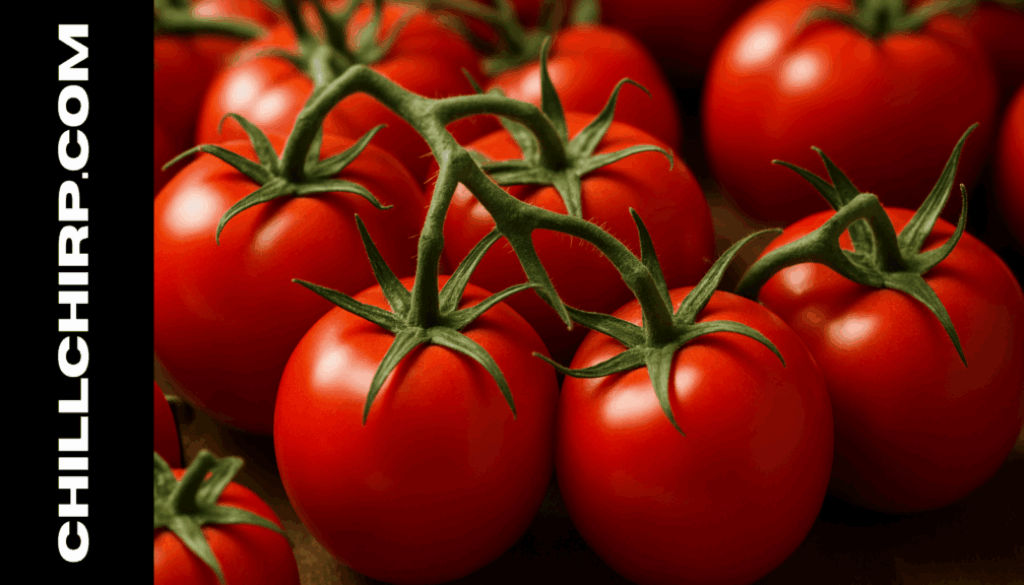FDA Tomato Recall Salmonella Alert: What You Need to Know
FDA Tomato Recall Salmonella Alert: What You Need to Know
In May 2025, the U.S. Food and Drug Administration issued a national tomato recall warning after detecting potential Salmonella contamination. The recall centers on fresh tomatoes packed under the Williams Farms Repack and H&C Farms labels (from South Carolina) and on 4-count vine-ripened tomatoes repacked by Ray & Mascari, Inc. (Indiana). Distribution occurred in late April, and the recall was announced in early May with no illnesses reported initially.
On May 28, FDA elevated the warning to a Class I recall – its highest alert – meaning consuming these products could plausibly cause serious illness or even death. Consumers in 3 Southern states and a dozen Midwestern/Northeastern states should stay alert: the affected tomatoes may have been sold through wholesalers, distributors or select grocery channels, including Gordon Food Service stores.
Affected Products and Brands
Officials have identified the specific tomato products and brands under recall. Williams Farms Repack LLC (Lodge, SC) is recalling multiple box sizes of fresh tomatoes sold under the Williams Farms Repack label and the H&C Farms label. These include loose tomatoes or clamshell packages ranging from 3-packs to 25-lb boxes.
The recalled lot codes are R4467 and R4470 for various sizes (for details, see FDA’s recall notice). Separately, Ray & Mascari Inc. of Indianapolis recalled 4-count vine-ripe tomatoes in 20-oz clamshells (UPC 796553200621). These were packed under the label “VINE RIPE TOMATOES – Packed by Ray & Mascari, Inc.”. Ray & Mascari’s recall was prompted by a notification from its grower, Florida’s Hanshaw & Capling Farms, of possible Salmonella in their facility.
The Ray & Mascari tomatoes were sold through Gordon Food Service stores in Illinois, Indiana, Kentucky, Michigan, Missouri, Mississippi, New York, Ohio, Pennsylvania, Tennessee, and Wisconsin. Consumers should check package lot numbers (RM250424 15250B and RM250427 15250B for Ray & Mascari) and UPC codes (e.g. 0 33383 65504 8 for 3-count trays) against official recall details.
If you purchased any of these products at retailers or via foodservice (e.g. restaurants or institutional kitchens), do not eat them – throw them away or return them for a full refund as instructed.
Timeline and Impacted States
- April 23–28, 2025: Suspect tomatoes were distributed. Williams Farms/H&C Farms tomatoes shipped to distributors in Georgia, North Carolina, and South Carolina. Ray & Mascari vine-ripe tomatoes went to GFS outlets in the 11 states listed above.
- May 2, 2025: Williams Farms Repack LLC voluntarily announces the tomato recall; FDA publishes the notice. At that time, no Salmonella illnesses had been linked to the tomatoes.
- May 2–3, 2025: Ray & Mascari, Inc. recalls its 4-count vine-ripe tomatoes. Hanshaw & Capling Farms reports to its customer (Ray & Mascari) about the possible Salmonella exposure.
- May 28, 2025: FDA upgrades the Williams Farms/H&C Farms recall to a Class I alert – its most serious classification. A Class I recall is defined by FDA as a situation with “a reasonable probability that use of… a violative product will cause serious adverse health consequences or death”. Authorities emphasize that any remaining recalled tomatoes, even if frozen, should be disposed of immediately (Salmonella can survive for weeks in a freezer).
Currently, no illnesses or deaths have been reported in connection with these tomatoes. However, given the severe warning, consumers are urged to act with caution. Check your fridge/freezer and pantry for these brands immediately, and follow the recall instructions from the FDA and manufacturers. For general guidance on contaminated products, see our food recalls overview and the FDA’s Food Safety Alerts.
Salmonella Symptoms and Risks
Salmonella is a type of bacteria that commonly causes food poisoning (salmonellosis). It can contaminate produce in the field or packing facility, and even small amounts can make people sick. Symptoms usually start within 6–72 hours after eating contaminated food. According to the CDC, common symptoms include diarrhea (often bloody), fever, and stomach cramps. Vomiting and nausea may also occur.
In healthy adults, symptoms can last 4–7 days and most recover without treatment. However, Salmonella poses a special danger to young children, older adults, pregnant women, and people with weakened immune systems. In these high-risk groups, the infection can be severe or even life-threatening.
Rarely, the bacteria can spread from the intestines into the bloodstream and cause more serious conditions like arterial infections (infected aneurysms), endocarditis, or joint infections. The FDA’s recall notice explicitly warns that vulnerable individuals could suffer “serious and sometimes fatal infections” if exposed.
If you experience any of the following after eating tomatoes (or any recalled food), seek medical attention immediately:
- Diarrhea lasting more than 2 days, especially with fever
- Bloody stools or urine
- Fever above 102°F (39°C)
- Signs of dehydration (dizziness, very dark urine, little or no urination)
Drinking plenty of fluids is important if you have diarrhea or vomiting. Do not hesitate to contact a healthcare provider early – CDC guidance is clear that patients should not wait to seek care if symptoms are severe or persistent. Also, tell your doctor or the health department if you suspect your illness came from recalled tomatoes; this helps officials track outbreaks.
You can report a foodborne illness to FDA through its Safety Reporting Portal or to your state health department. For step-by-step advice on a recall, see FoodSafety.gov’s “What to Do If You Have a Recalled Product” guide.
What to Do If You Ate Recalled Tomatoes
Even if you have eaten some of the recalled tomatoes, do not panic. Take these steps immediately:
- Stop eating them. Regardless of how they were prepared, do not eat any more of the product.
- Do not open or handle contaminated packages. You cannot see or taste Salmonella, and opening the package can spread germs. If you must handle it (to discard or return), wash your hands thoroughly with soap and water for 20 seconds afterward.
- Follow disposal or return instructions. Check the recall notice or product label for guidance. Typically, FDA advises to return the product to the place of purchase for a refund or thoroughly discard it in sealed garbage, so no one else (including pets) can eat it. Do not donate or give recalled food to others.
- Monitor your health. If you feel sick (see Salmonella symptoms above), contact a doctor, especially if symptoms worsen or do not improve. Let them know you ate recalled tomatoes.
- Report any illness. If you or a family member become ill, keep a record of symptoms and see your doctor. You may also report the illness through FDA’s MedWatch or the CDC’s reporting systems. Reporting helps prevent further cases.
Following these steps can keep you and your household safe. Remember: even if the tomatoes were frozen or cooked, Salmonella can survive cold temperatures. When in doubt, throw it out. For more guidance on handling food recalls, review our article on how to report contaminated food.
FDA Safety Recommendations and Staying Safe
The FDA provides guidance for all consumers during recalls. Key safety tips include:
- Check for updates: The FDA and CDC maintain online recall and alert pages for consumers. Frequently visit FDA’s Recalls and Alerts site or sign up for recall notifications. Official notices list brand names, lot codes, and purchase information.
- Handle produce safely: Always wash fresh produce under running water, even if you plan to peel it. (Note: washing may reduce but not eliminate Salmonella.) Cook thoroughly when recipes call for it.
- Practice good hygiene: Wash hands before and after handling raw produce. Clean cutting boards and utensils with hot soapy water after use. These simple steps help prevent cross-contamination.
- Be cautious with home freezing: If you froze any suspicious tomatoes, don’t rely on freezing to kill bacteria. As noted, Salmonella can survive in wet freezing conditions. Dispose of frozen product from the affected batches as well.
- Follow FDA recall instructions: The FDA classifies this as a Class I recall, meaning high risk. As such, consumers should immediately remove these products from their homes. The agencies have determined that there is a reasonable probability of serious harm if the tomatoes are eaten.
By staying vigilant and following official advice, you can protect yourself and others. For general information on food safety and other recalls, see our FDA food alerts section or the FDA’s Recalls, Market Withdrawals & Safety Alerts page. Remember: it’s better to double-check a product than to risk illness.
FAQ
Q: Which tomato products are included in the FDA recall?
A: The recall covers multiple fresh tomato products. The main ones are multi-count tomatoes labeled “Williams Farms Repack” or “H&C Farms” (sizes from 3-count trays up to 25-lb bags) shipped to Georgia, North Carolina, and South Carolina. It also includes 4-count vine-ripened tomatoes in clam-shells sold by Gordon Food Service (packed by Ray & Mascari, Inc., with specific lot codes RM250424/15250B and RM250427/15250B) in 11 Midwestern/Northeastern states. Check the FDA recall notices for exact UPC/lot number details.
Q: What symptoms of Salmonella should I watch for, and when do they appear?
A: Symptoms usually begin within 1–3 days after exposure. Watch for diarrhea (often bloody), fever, nausea, vomiting and stomach cramps. Most people recover without treatment, but seek medical care if symptoms are severe (high fever, prolonged vomiting or diarrhea, dehydration). At-risk individuals (young children, seniors, immune-compromised) should be especially vigilant.
Q: Can Salmonella in recalled tomatoes survive cooking or freezing?
A: Cooking to a safe internal temperature can kill Salmonella, but reheating tomatoes to well above 165°F (74°C) would be required. Note that the FDA cautions that Salmonella can survive in a freezer for weeks. If you suspect the tomatoes were contaminated, it’s safest to discard them regardless of how you stored them.
Q: How do I report if someone got sick after eating recalled tomatoes?
A: If illness occurs, call your doctor and mention the recall. You can also report foodborne illness to your state or local health department. To report an adverse event or safety issue with food, FDA offers the MedWatch Safety Information and Adverse Event Reporting Program (online at FDA’s website). For general steps on reporting contaminated food, see our guide on how to report contaminated food.
Q: Where can I get updates on food recalls and alerts?
A: Check FDA’s Recalls & Alerts page and subscribe to notifications. The U.S. Department of Agriculture (USDA) and the Centers for Disease Control and Prevention (CDC) also post outbreak and recall information. Follow official social media channels (e.g. @FDA) or your local health department for rapid alerts. We also cover major recalls and safety news in our food recalls section.
Stay informed and stay safe. Share this information with friends and family to help protect the community. If you found this article helpful, please share it and subscribe for updates on food safety alerts.
You May Also Like to read:
Buga Colombia UFO Sphere: 5 Shocking Facts You Must Know
Is Walmart Open on Memorial Day 2025? 7 Key Things to Know



